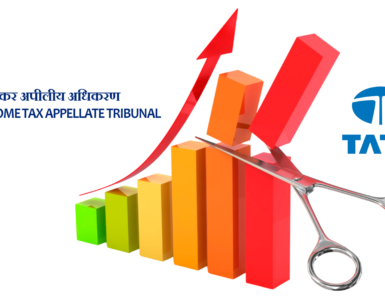The order dated December 18, 2019 of National Company Law Appellate Tribunal (NCLAT) has reinstated ousted Tata Sons Chairman Cyrus Mistry as Chairman while restoring Mistry to the position, the NCLAT held that the appointment of N. Chandrasekaran as Executive Chairman was illegal. The two-Judge bench declared that resolution passed by the Board of Directors of Tata Sons to remove Mistry, from his post and all consequential actions taken by Tata Group companies to remove him as director “illegal’’.
Series of Events:

Procedural Aspects in Implementing Order of NCLAT:
1. The term of appointment of Cyrus Mistry as an Executive ChairmanMr. Cyrus Mistry was appointed as Executive Chairman of Tata Sons Limited from 28th December 2012. In a Board Meeting dated 24th October 2016 Mr. Cyrus Mistry was removed as Executive Chairman of ‘Tata Sons Limited’ because the Trust had lost confidence in him for a variety of reasons.
(NCLAT Order Page No. 94-95, Minutes of the Meeting dated 24th October 2016)
The NCLAT has held that appointment of Mr. Cyrus Pallonji Mistry as an Executive Chairman with substantial powers of management, was akin to that of a Managing Director and will be considered as Key Managerial Personnel.
(NCLAT Order page no. 42, paragraph 88)
Mr. Cyrus Pallonji Mistry is restored to his original position as Executive Chairman of ‘Tata Sons Limited’ and consequently as Director of the ‘Tata Companies’ for rest of the tenure.
(NCLAT Order page no. 167, paragraph no. 187(i))
The NCLAT has also said that for better protection of interest of all stakeholders as also safeguarding the interest of minority group, in future at the time of appointment of the Executive Chairman, Independent Director and Directors, the ‘Tata Group’ which is the majority group should consult the minority group i.e., ‘Shapoorji Pallonji Group’ and any person on whom both the groups have trust, be appointed as Executive Chairman or Director, as the case may be, which will be in the interest of the Company and create healthy atmosphere removing the mistrust between the two groups.
(NCLAT Order page no. 165-166, paragraph no. 185)
Procedure to follow:
For reinstating Mr. Mistry as “Executive Chairman”, Tata Sons need to follow procedure mentioned in Section 196, 197 of the Companies Act, 2013 like:
-Calling & Holding Board Meeting and passing the resolution w.r.t. reinstating Mr. Mistry as Executive Chairman,
– Obtaining documents (MBP-1, DIR-2, DIR-8) from Mr. Mistry
– Filing of E-form MGT-14, DIR-12 and MR-1
As per Section 196 (2) of Companies Act, 2013 a person shall not be appointed as Managing Director, Whole-time Director or Manager for a term exceeding five years at a time. Mr. Mistry was originally appointed as Executive Chairman of Tata Sons from 28th December 2012. The original term of appointment of Mr. Mistry was to be ended on 27th December 2017 but considering his removal with effect from 24th October 2016, his re-instated Chairmanship will last only for rest of the tenure i.e. for 1 year 2 months.
2. Directorship in Group Companies:NCLAT has restored Mistry’s original position as Executive Chairman in Tata Sons and consequently as Director of the ‘Tata Companies’ for rest of the tenure. — Tata Consultancy Services, Tata Industries and Tata Teleservices.
(NCLAT Order page no. 166-167, paragraph no. 187(i))
Procedure to follow:
-To obtain documents viz MBP-1, DIR-2 and DIR-8 from Mr. Mistry to reinstate as a Director.
-Calling & holding Board Meeting to pass the resolution to take note of the Order and reinstating Mr. Mistry as a Director on the Board.
– Filing of E form MGT-14 and DIR-12.
3. Conversion from Public to Private is illegal, Power of Registrar for restoring status of Tata Sons as a Public Limited.NCLAT holds that, the conversion from Public Limited Company to Private Limited Company has been made by the Registrar of Companies in view of the definition of ‘Private Company’, as defined under Section 2(68) of the Companies Act, 2013. There is no provision under the Companies Act, 2013 for automatic conversion of ‘Public Company’ to ‘Private Company’ or a ‘Private Company’ to ‘Public Company’. Therefore, on the basis of definition of ‘Private Company’ as defined under Section 2(68) of the Companies Act, 2013, there cannot be automatic conversion of a ‘Public Company’ to ‘Private Company’. Similarly, on the basis of definition of ‘Public Company’ as defined under Section 2(71) of the Companies Act, 2013, there cannot be automatic conversion of Private Company’ to ‘Public Company’ (NCLAT Order page no. 161, paragraph no. 173)
The Company (‘Tata Sons Limited’) having become ‘Public Company’ since long, for altering its Articles as a ‘Public Company’ into a ‘Private Company’, it is required to follow Section 14(1) (b) r/w Section 14 (2) (3) of the Companies Act, 2013.
(NCLAT Order page no. 161, paragraph no. 175)
The decision of the Registrar of Companies changing the Company (‘Tata Sons Limited’) from ‘Public Company’ to ‘Private Company’ is declared illegal and set aside. The Company (‘Tata Sons Limited’) shall be recorded as ‘Public Company’. The ‘Registrar of Companies’ will make correction in its record showing the Company (‘Tata Sons Limited’) as ‘Public Company.
(NCLAT Order page no. 168, paragraph no. 187(iv))
The NCLAT states that conversion was wholly against the provisions of section 14 of the Companies Act and contrary to the assurances made to shareholders.
Provisions under Law:
As per Section 14 of the Companies Act, 2013, if any Company decides to alter its articles having the effect of conversion of a ‘Private Company’ into a ‘Public Company’ or a ‘Public Company’ into a ‘Private Company’; it is required to pass a special resolution and as per subsection (2) of Section 14, it requires approval by the Tribunal. Only after the order of approval by the Tribunal, the Company can request the Registrar together with a printed copy of the altered articles, to register the Company as ‘Private Company’ or ‘Public Company’ as the case may be.
As per Rule 165 of National Company Law Tribunal Rules, it shall be duty of the Registrar to take expeditious steps to comply with the directions of the NCLAT. As per Order of NCLAT, the ‘Registrar of Companies’ will make corrections in its record showing the Company (‘Tata Sons Limited’) as ‘Public Company’.
So as per the order of NCLAT, Registrar of Mumbai need to change name of Tata Sons from Private Limited to Public Limited and update its Register on its own without any application by the Company. Further, as per recent developments, RoC has moved to NCLAT to implead in the case, RoC is seeking for deletion of the words – ‘illegal’ and ‘with the help of the RoC’ used by the NCLAT in the order.
4. Will there be any implications on exemptions availed by Tata Sons as a Private Limited Company?As per Notification dated 5th June 2015 and 13th June 2017 various exemption are granted to Private Companies.
Notification dated 5th June 2015 states that the Private Companies while complying with such exemptions, modifications and adaptations, as specified, shall ensure that interest of their shareholders is protected.
Notification dated 13th June 2017 provides that, the exceptions, modifications and adaptations provided shall be applicable to a private company which has not committed a default in filing its financial statements under section 137 of the Companies Act, 2013 or annual return under section 92 of the Companies Act, 2013 with the Registrar.
If Tata Sons have availed any of the exemptions available to private companies, during the period from conversion till order of NCLAT, then they must prove that the said exemptions availed in such way that the interest of shareholders are not affected, and the Company has duly complied with Annual filing.
5. If the appointment of N. Chandrasekaran itself is held illegal, then what will happen to the decisions taken by Chandrasekaran since his appointment?Section 196 (5) of the Companies Act, 2013 states that subject to the provisions of this Act, where an appointment of a managing director, whole-time director or manager is not approved by the company at a general meeting, any act done by him before such approval shall not be deemed to be invalid. This section is exempted to Private Companies by the notification 5th June 2015.
Any act done by MD, WTD or Manager before approval of his appointment in General Meeting shall not be deemed to be invalid, but NCLAT Order is not clear on what happens to the decisions already taken by Chandrasekaran since he was appointed as Chairman in February 2017. Mr. N. Chandrasekaran can continue for the four weeks or till Tata Sons gets a stay from the Supreme Court, but it will be prudent if Tata Sons board and the present chairman do not take any crucial decision till the litigation on this case is over as its decisions can be challenged in future. There is legal uncertainty on the decisions taken by N. Chandrasekaran during his tenure as Executive Chairman of Tata Sons Limited.
6. Will remuneration paid to N. Chandrasekaran as “Executive Chairman” be considered in overall Managerial Remuneration?As per Section 196 (4) remuneration payable to Managing Director, Whole-time Director or Manager shall be approved by Board of Directors subject to approval of members in next general Meeting.
Section 197 of the Companies Act, 2013 lays down the overall maximum of managerial remuneration which can be paid by public company or a subsidiary of a public company. The total managerial remuneration payable to directors or manager in respect of a financial year shall not exceed eleven per cent of the net profits of the company.
The appointment of Mr. N. Chandrasekaran as ‘Executive Chairman’ in place of Mr. Cyrus Pallonji Mistry is declared illegal by NCLAT. As the Act is silent on such type of situations where appointment of Executive Chairman was declared illegal by the Appellant Tribunal, then treatment for remuneration already paid to him in his capacity as an Executive Chairman and fate of the actions taken by him during interim period needs to be addressed in a way not effecting large number of stakeholders.
7. Appeal by Tata Sons in Apex CourtAs per the newspaper report
Tata Sons has moved to Supreme Court on January 2, 2020 under Section 421 of the Companies Act, 2013 against NCLAT Order restoring Cyrus Mistry as Executive Chairman.
An Appeal has been made broadly on following grounds:
- NCLAT Judgement inconsistent with the annals of corporate law, reflects non-appreciation of facts and is untenable in law.
- NCLAT Judgement has created confusion in the working of important corporate entities, some of which are listed companies.
- NCLAT Judgement has undermined corporate democracy and rights of the Board of Directors.
- Mistry’s removal was because there was an ‘untenable trust deficit’ between Tata Trusts and Mistry.
- Actions by Mistry were causing grave threat to the integrity of the Board and the Company.
- NCLAT granted relief to Mistry which he did not even seek.
All eyes will now be on the Supreme Court’s decision on the matter.
If Supreme Court quashes NCLAT’s order, N Chandrasekaran will continue to be the executive chairman of Tata Sons. Mistry, on the other hand, will not be left with any option with respect to his chairmanship.
If Tata Sons loses the Appeal, it still has another option of vote of no-confidence against Mr. Mistry to be passed in Board Meeting. Subsequently, it could call for a poll by all its existing shareholders to decide Mistry’s fate.
Conclusion:
“A single isolated incidence such as removal of a director which is not in accordance with the manner prescribed under the law can constitute operation of the minority shareholder is settled law.” However, it is not feasible to implement the order of the NCLAT as it is. Further, how various actions taken by the new chairman will be protected during interim period between this order and earlier order, how various sections to be interpreted is a challenge which needs to be addressed in a way that it captures essence of the direction and not invalidating any actions taken during interim period.





Add comment